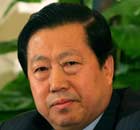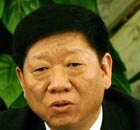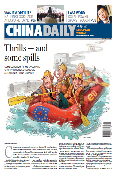Why 4 percent is controversial
Updated: 2010-11-29 09:22
By Shi Jiaqi (chinadaily.com.cn)
Indicative guidelines: Is America serious at all?
Although the "indicative guidelines" are included in the Seoul summit communiqué, few believe that the world economy is heading into an era dominated or guided by a group of numbers.
First, the debate will easily spill over from trade numbers to other economic indicators. Fiscal deficit is an obvious candidate. As indicated by economic history, fiscal deficit tends to aggravate trade deficit. Given the fact that European countries chose to consolidate their fiscal positions after the rage of the Greek debt crisis, more external pressures will be put on America to rethink its fiscal health.
US government debt, which will climb to more than 93 percent of the GDP this year, is also worrisome. While there are discussions inside America to stabilize the national debt to a more sustainable level of 60 percent by 2018-2020, no consensus has been reached yet.
US monetary policy, in its recent form of a QE2, sparked universal anger just before the Seoul summit. Some critics commented that by adopting this policy, America acted more as a troublemaker than a responsible superpower. If America wishes to negotiate the limit of trade numbers, perhaps other countries would like America to be more careful and considerate when making its monetary policy.
Second, the indicative guidelines may herald prevalent trade protectionism. ASEAN countries voiced this concern just before the opening of the Seoul summit, and they are right. Even if the involved countries agree on the merits of the indicative guidelines, to correct the external imbalances will be a long and painful process in which adjustments in the domestic economic structure are required. To complete this kind of reform within three to five years, as suggested by the US, will only create unimaginable problems. What if countries can't reach the target within the time limit? They will probably have to choose which sectors to protect most, and this, in turn, will trigger angry retaliations from their trade partners and even push the world economy to the brink of a trade war.
America may be fully aware of all the above difficulties and potential risks. Perhaps its aim to insert the "indicative guidelines" into the summit agenda is just to keep the fire of global imbalances burning. Its real intention, however, is to push countries like China to further embrace financial liberalism.
Paper's Digest

Chinese jet takes on Big 2
First large commercial plane set to ride on demand for aircraft as economy grows.
Super-CPU only for domestic eyes
Specials

Gaining ground
Doing business in china for westerners has come a long way, Peter batey says.

Safeguarding environment a priority
China continues to face mounting pressure to curb environmental degradation, despite progress in reducing pollution over the last five years, the environmental protection minister warned.

Employment to remain a continuing challenge
China's top labor official said the country will face a tough employment situation in the next five years.
